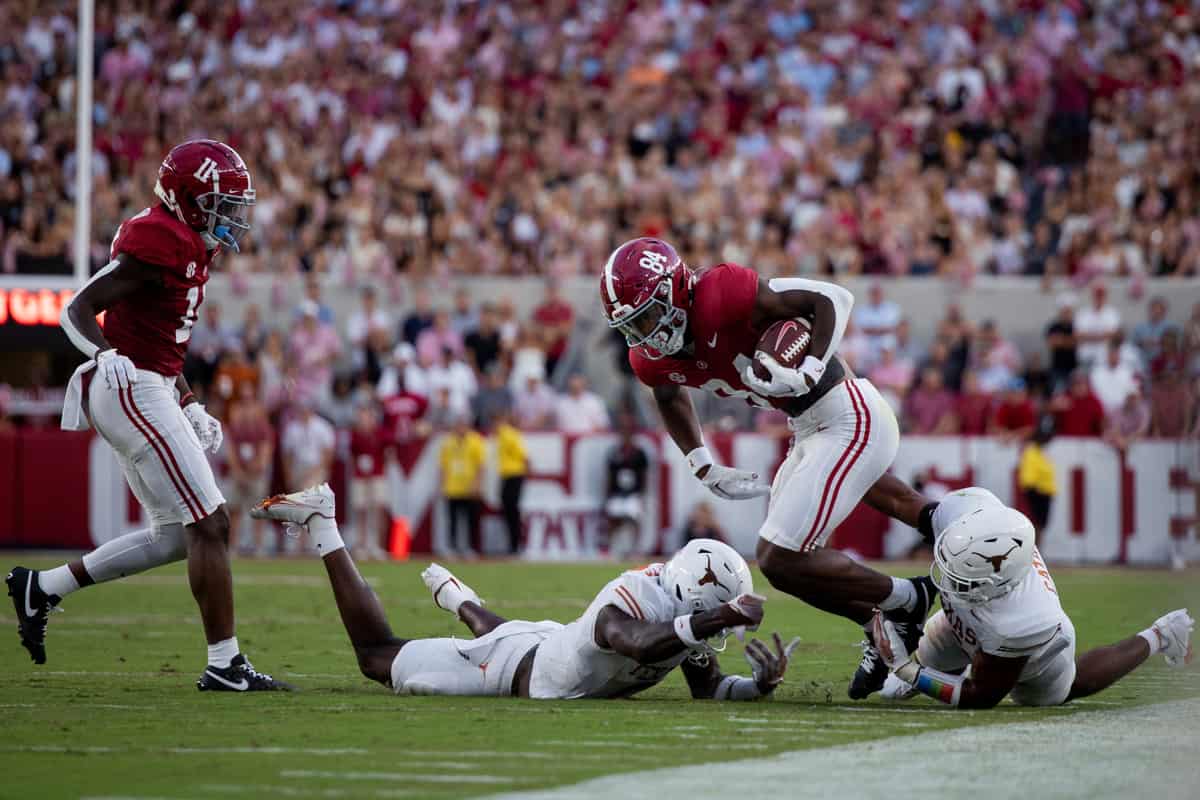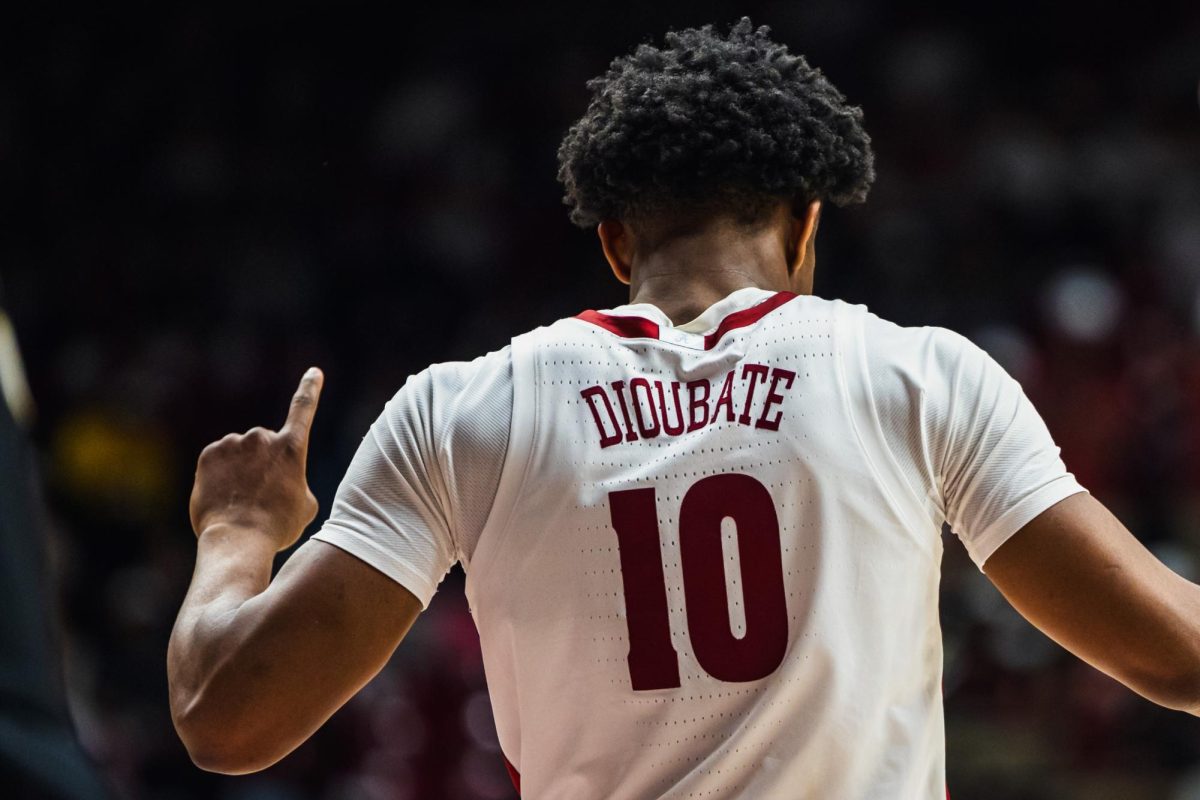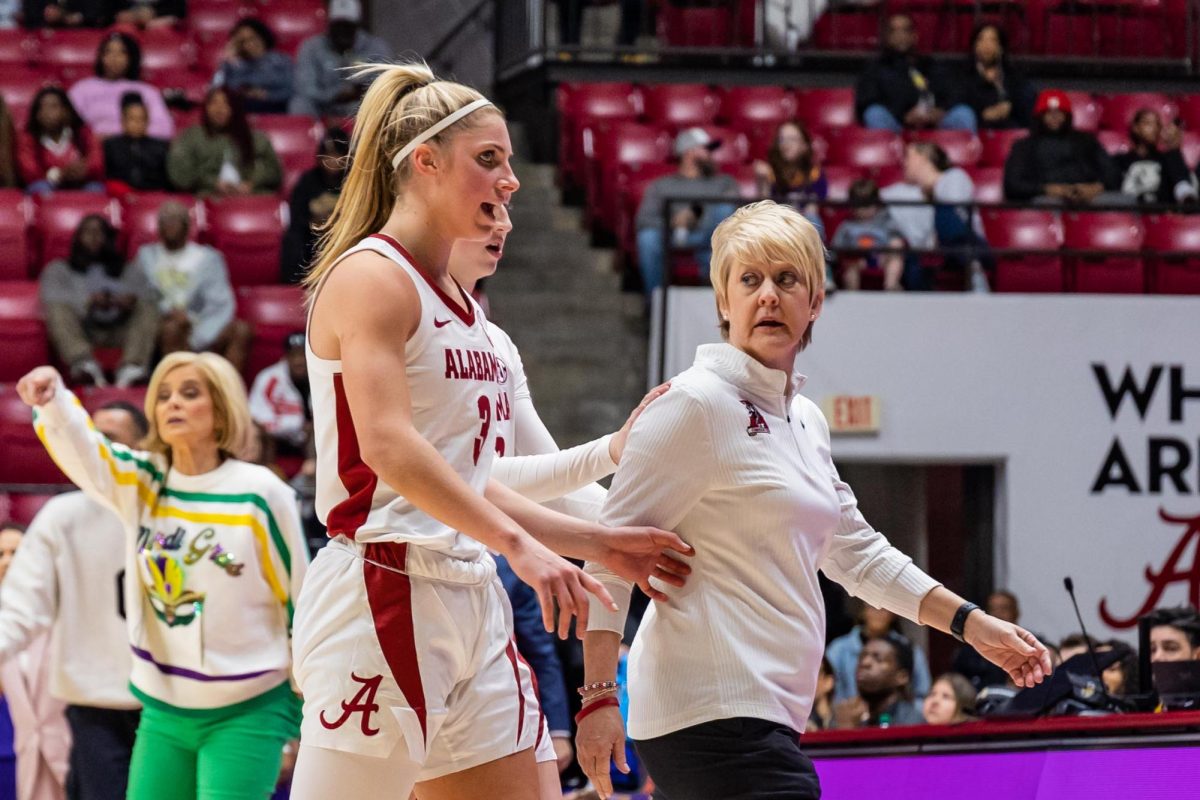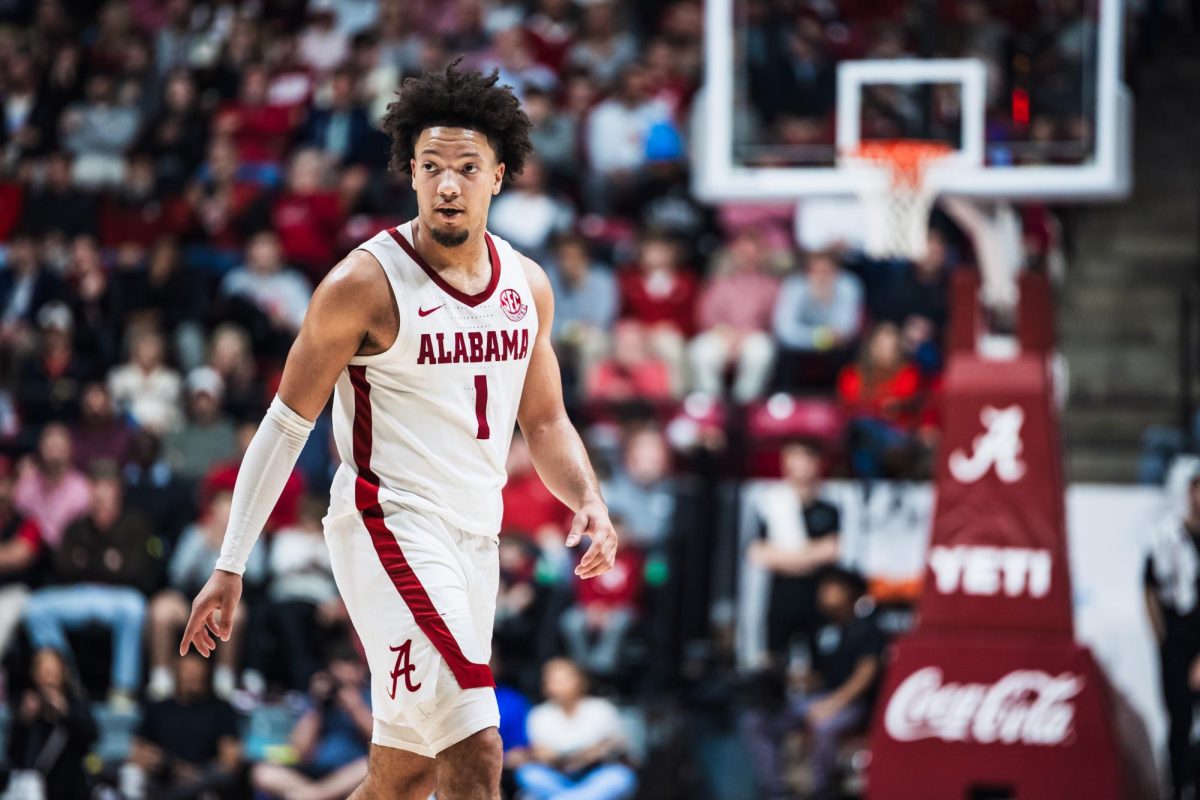As players, coaches and media gradually left the field following Texas’ 34-24 upset victory of then-No.3 Alabama on Sept. 9, a fatalistic haze hung over Bryant-Denny Stadium. Fans weren’t stunned, however; they were cynical.
“I think it definitely hurts our reputation a little bit,” sophomore nursing student Zaira Beck said in an interview after the upset.
Freshman political science major Matthew Fritz-Kent was much more severe.
“This is probably the worst team under [head coach Nick] Saban in many years,” Fritz-Kent said. “I think we will still have our Tennessee rivalry and we will still say horns down. … We will come back stronger next year.”
This season’s outlook changed that night, as the Longhorns exposed what seemed to be an inexperienced secondary and an offense without an identity. From the defeat arose a question that has loomed over the team for the past two seasons amid seemingly unprecedented struggles: Is the Alabama dynasty over?
The Crimson Tide responded with a renewed passion, and it has led to a perfect balance of vulnerability to competition and satisfaction from well-earned victory. It has led the fan base to show greater appreciation for week-to-week success than it has in many years.
To understand this passion, one must first understand Alabama’s descent from immortality and status as a college football dynasty.
College football analyst and former Alabama quarterback Greg McElroy was asked the question of the dynasty on his podcast “Always College Football With Greg McElroy.”
“It depends a little bit on how you define ‘dynasty,’” McElroy answered. By his definition of “dynasty” — a team completely and consistently dominant over its opposition — the answer was yes. Although he wasn’t out on the Crimson Tide as a championship contender, he submitted that “the run of dominance in which they destroy every opponent is done.”
After the previous two seasons of Alabama football, such a statement holds a lot of truth. At the time of the Texas loss, Alabama was 4-3 in its previous seven games against Power Five conference foes.
More broadly, 2021 and 2022 saw drastic dips in scoring differentials. Every year 2015-2020, Alabama beat opponents by an average of over 20 points, with the lone exception of the 2017 national championship campaign. In the two years since that run, it dropped to margins of 11.8 in 2021 and 8.5 in 2022.
These are only small, tangible snapshots of what has been a large, palpable feeling. Last season’s two losses didn’t cause so much disillusionment because of their individual gravity — they came by a combined 4 points to teams near or at the top of the national rankings — but because of their portent. The prevailing feeling was that this iteration of Alabama football was simply inferior to those of what felt like the distant past.
With this feeling came one problem: We’ve been here before.
Just as McElroy and countless others, whether pessimistic fans or bloodthirsty opposition, declared the Alabama dynasty dead, so others have done in the past.
In 2013, Bleacher Report’s Barrett Sallee wrote an article titled “The Night the Alabama Football Dynasty Died.” Following the Crimson Tide’s gut-wrenching loss in the Iron Bowl days earlier, Sallee asserted that with “the changing landscape, roster turnover and Alabama’s loss to Auburn,” the dynasty was effectively ended. A new quarterback, defensive personnel changes and increasing national competition proved to be too much for Saban’s juggernaut to endure.
One season came and went, one that was marred in disappointment. Never mind that it saw Alabama earn the top seed in the first-ever College Football Playoff; all that is remembered from the 2014-15 season is Ohio State’s iconic upset of the Crimson Tide en route to a national championship.
When in 2015-16 the team suffered an early loss to the same Ole Miss team that had upset it the year prior, cynicism was at an all-time high for Saban’s tenure.
“At Alabama, doubt replaces a football dynasty,” USA Today wrote. “More excuses as Alabama continues tumble from top of football world,” The Sporting News proclaimed. Across college football fandom, it was all but solidified that Alabama’s run was over.
Five months later, the Crimson Tide was the national champion.
It would be imprudent to say that the uncanny similarities mean the 2023 Alabama Crimson Tide should be penciled in as champions. What it does show is that in a sport rife with variability and year-to-year roller coasters of success, one or two losses more than expected over a multiyear timeframe is hardly enough to declare a program with such long-standing greatness dead and in the grave.
This year’s team is proving the irresponsibility of such a hasty condemnation. Since the Texas game and the abnormally abysmal showing at South Florida the week after — which, given the hectic personnel changes and morale situation, should be taken with a grain of salt, if not the entire shaker — Alabama has blossomed into one of the best teams in the country.
The Crimson Tide currently sits at No. 8 in the CFP rankings released Tuesday. Alabama endured a brutal midseason SEC gauntlet, boasting wins over top 20 teams Ole Miss, Tennessee and LSU. This run culminated in Saturday’s beatdown of Kentucky, which unambiguously signaled the Crimson Tide’s return to legitimate contention.
What stands out most about this team — aside from the highly improved on-field product — is the appreciation evoked by its competitiveness. Aside from Kentucky and, in stretches, Mississippi State, none of these wins have been easy. It isn’t as if this Crimson Tide team went from barely beating South Florida to emulating the utter week-to-week dominance of years past.
The process has been organic, a true evolution from good but unrefined to undeniable challenger for the national championship.
Watching dominance is easiest for the fan, but it leads to complacency. History instructor Glenn Brasher, who has followed Alabama football since the days of Paul “Bear” Bryant, said he felt vexed watching younger, dominance-conditioned fans taking success lightly.
“I got so frustrated,” Brasher said. “We had the problem of students leaving the games early and saying they were ‘bored.’”
By contrast, appreciating wins that feel earned is much more fulfilling. Sports media instructor Mark Mayfield thinks fans no longer take winning for granted.
“We’ve seen a lot of enthusiasm, maybe at a level that hasn’t existed on campus since Saban’s early years here. It has been great to witness,” Mayfield added.
Creative media professor Chandra Clark agreed.
“We have seen too many games in Bryant-Denny over the decades where fans cleared out too early in the fourth quarter, but the fans do what Saban asks to support him and the team,” Clark said.
Of the many games this season that have seen highly competitive final periods with raucous crowd support, she continued, “it’s been good for the atmosphere and the fans to be forced to stay for all four quarters.” She cited the broken decibel record from the climactic win over LSU. There is perhaps no better evidence for this season’s heightened fanfare.
The lesson to be learned is that while Alabama has been objectively less dominant the past couple of years, the reaction should not be of cynicism and lamentation over a dead dynasty. History has proven that in the darkest hours, when success seems to lie at the top of an unclimbable mountain, Saban-led teams have the ability to shine brightest.
Even if this year’s team falls short of the redemptive peak that the 2016 team reached, it has brought about a renewed passion from fans.
Big-picture success — SEC championships, playoff berths, national championships — has always been sacred. But whether young or old, new to the game or a football savant, the Crimson Tide faithful are more invested in each play, each crucial first down, each late-game defensive stop than they have been in a very long time.
Students from previous seasons might be able to boast more trophies and more tangible triumphs. For those who walk the campus Sunday to Friday, however, Saturday matters more than in any of those seasons. At Alabama, football is no longer just a championship ring or a trophy in a case; it’s a game to be watched with love and passion.
What could be more beautiful?









